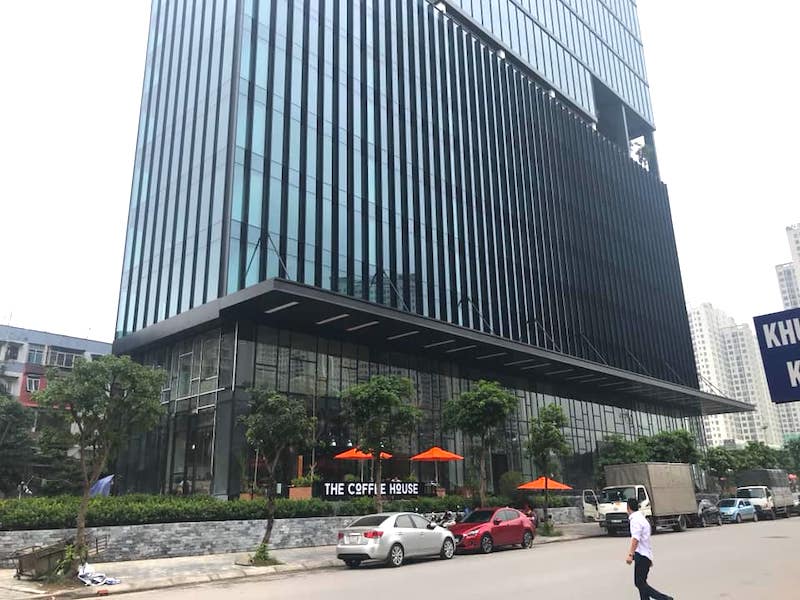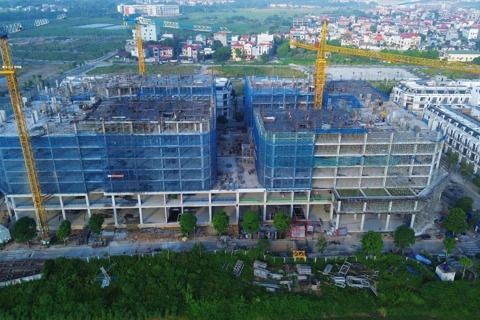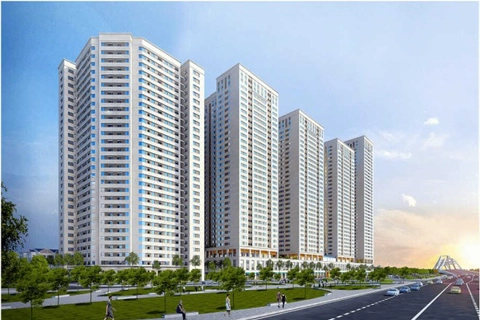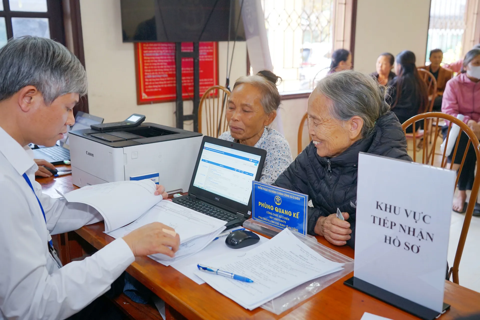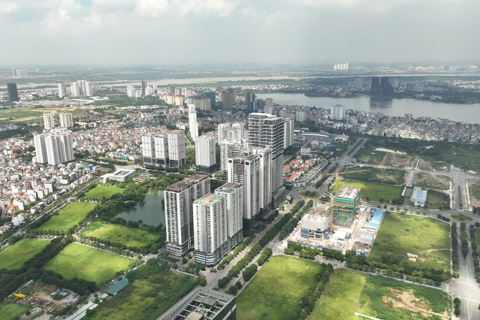Surge in supply of Vietnam’s green buildings
Vietnam’s new green buildings represent an almost $80 billion investment opportunity.
Vietnam has a huge opportunity for the development of green buildings as sustainability is an important or top-level priority for their organization, foreign experts said.
| Leadvisors Place is one of the certified green buildings in Hanoi. |
Speaking at a webinar “Vietnam green building market update Q3/2021 and Unlock green potential for existing properties” on November 23, Michelle M. Farrell, Global Marketing & Business Development Lead for EDGE green building at IFC revealed that, by September 2021, Vietnam has 201 certified green buildings, equivalent to 5.3 million square meters, an increase of 30% over the same period last year.
Among these certified green building projects, EDGE (Excellence in Design for Greater Efficiencies) accounted for 50% of the total number, followed by LEED (Leadership in Energy and Environmental Design) (44%) and Lotus (Vietnam’s set of voluntary green building rating systems) (7%).
“Real estate developers are increasingly interested in green buildings,” Farrell added.
Six out of 14 top-listed developers in Vietnam have planned or implemented green building projects in their portfolio. These are Novaland (NVL), Nam Long (NLG), Khang Dien House (KDH), Van Phu Investment (VPI), Phat Dat (PDR), and DIG.
Residential and industrial are greenest sectors, accounting for the majority of total areas certificated green building in Vietnam, with 41% and 37%, according to IFC.
Regarding the demand of local tenants, Neil MacGregor, Managing Director of Savills Vietnam said a certain number of global businesses have stated net-zero carbon emissions. “That’s why businesses looking for offices or buildings to rent and build are always moving towards green certification. These tenants are willing to pay a higher fee for these buildings,” he added.
He stated that the businesses wishing to rent an office in Vietnam are also interested in green building certification though this market is quite young.
However, this poses a big challenge for the supply when investors are looking for green, friendly buildings to invest more, MacGregor said, adding there is also growing interested in upgrading existing buildings for the retail segment in Vietnam.
Forecasting the green building market, Farrell from IFC said: “For Vietnam, we see a huge potential market opportunity in green building.”
She added during the COP26 conference, many countries set emission reduction targets and the Vietnamese Prime Minister stated a goal of net-zero emissions for Vietnam by 2030.
To be able to realize this goal, it is necessary to understand the trends in the coming time including green finance, zero carbon emissions, and upgrading existing buildings to achieve green criteria, she said.
IFC estimated the country’s new green buildings represent an almost $80 billion investment opportunity. Potential investment in renewable energy totals $59 billion, with over half of this ($31 billion) in solar photovoltaic (PV) technology and another $19 billion for small hydropower projects,
Vietnam’s climate-smart business investment potential is an estimated US$753 billion, with the majority ($571 billion) going towards the country’s transportation infrastructure needs by 2030, according to IFC.
Currently, countries have set requirements for environment-social-government (ESG) reporting, which have become one of the important items on the agenda for sustainable development.
ESG reporting including energy use and emissions, labor practices, board diversity, and management is now mandatory for Hong Kong (China) listed companies. Vietnam, China, New Zealand, Singapore, and India will be the followers in 2024-2025.
MacGregor said Vietnam’s policy for ESG is new and has become clearer.
According to Circular 96 issued by the Ministry of Finance, listed companies are required to submit and publish ESG credentials in their annual report, which includes corporate objectives with regard to the corporate environment, society, and community sustainability. The company may prepare a separate report on ESG.

